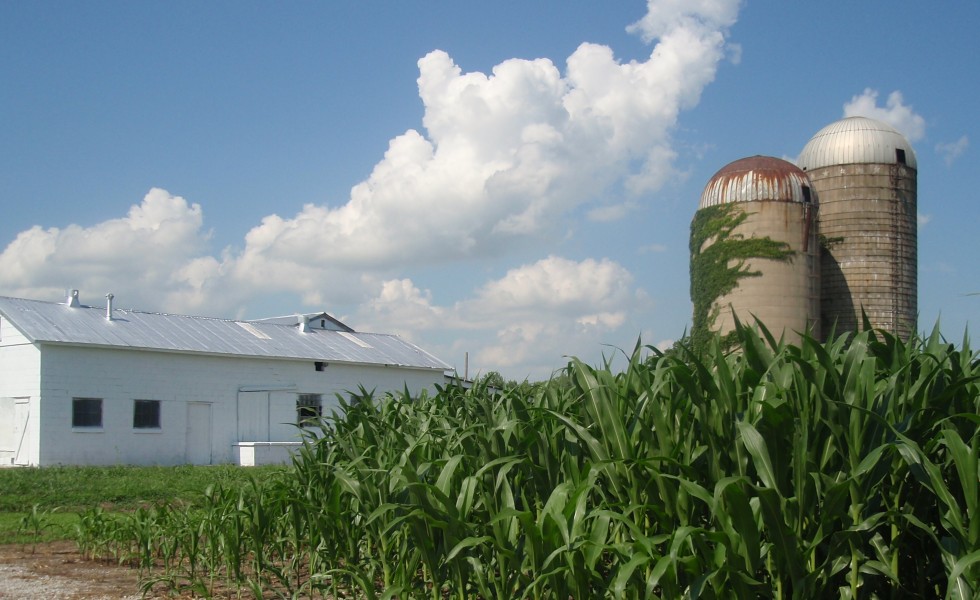Sometimes the Hardest Thing to Do is Nothing; Let’s Do it
Posted on July 29, 2020

Mid-July was always summer’s sweet spot on the southern Illinois dairy farm of my youth.
With June’s rush of sweaty work—wheat harvest, straw baling, laying corn by, cultivating soybeans, and weed spraying—finally complete and before another cutting of alfalfa was ready, mid-July slipped in with treats like fresh peaches, sweet corn, and juicy garden tomatoes.
Mid-July also meant baseball’s All Star game, the county fair, and a week’s vacation in Missouri’s far away Lake of the Ozarks where we kids would swim all day, Dad would fish all day, and Mom wouldn’t can a quart of anything any day.
This year, most fairs have been cancelled and baseball and vacations have either been dramatically altered or simply cashiered because of Covid. In a way, most of this summer’s fun has been cancelled for countless Americans by, well, themselves in a personal effort to stay healthy.
The clear result of these individual stands, however, has been spectacular failure. Our uneven, state-by-state approach to fighting the virus has turned yesterday’s pandemic into today’s pandemonium.
And yet, many of us and our political leaders appear less concerned with the virus’s ferocious return than with its deadly appearance. It’s as though the nation, after months of coronavirus fighting and weeks of Black Lives Matter marches and protests, simply ran out gas this month.
I understand; I’m out of gas, too. March was a blur of shocks and lockdowns; April, a 24/7 death-everywhere movie. May brought a drop in shock and rise in hope but, then, June caught fire and burned like a dry prairie.
And just as everyone was ready to lean into mid-July’s soft, sweet center, back comes the mortal need to stay vigilant, stay masked, and stay home.
In reality, most of today’s Covid preemptive prescription sounds like a piece of cake compared to the hard work of our 1960s dairy farm. One piece of it, stay at home, is what we did anyway.
Only now, with Covid on the loose, staying home delivers the benefit of staying healthy. I can, literally, live with that.
Just as I can now live without Oliver square balers that were as reliable as the weatherman’s forecast and milking 100 hot Holsteins in a 100-degree milking parlor on late Sunday afternoons in July.
I would, however, love to go back to any of those steamy July evenings when Uncle Honey, my father’s uncle and part owner of the farm, would take my two older brothers and me to St. Louis to watch the Cardinals play. The games were great, and the root beer and hotdogs were even better.
But those nostalgic memories overshadow just how blood-filled the 1960s were. There isn’t enough space here to list all the people who were devoted to make America better that decade and were murdered, many of them publicly, just because they tried.
Then came Vietnam. If you lived through the 1960s and 70s, you are not neutral on that war or its powerful influence on politics still today.
And if you think American cities were hit by racial strife last month, those fires were mere torches to show our half-century of failure to heed the race-fueled riots that burned large portions of Detroit, Los Angeles, Chicago, Newark, and other cities in the 1960s.
In fact, none of today’s deep national woes—save Covid-19—are new and few, if any, are as nation-threatening as 50 years ago when American blood flowed from Selma to Saigon. We never fully fixed those problems; like today, we just ran out of gas to fight them.
But now they’re back and until we find the fuel—the ideas, leadership, and strength—to reengage, maybe we should take July’s sweet second half to do exactly what we used to do: not much at all. Simply staying home and wearing masks in public.
Those, in fact, are nothing compared to the sacrifice others made to deliver us here.
© 2020 ag comm
Share This